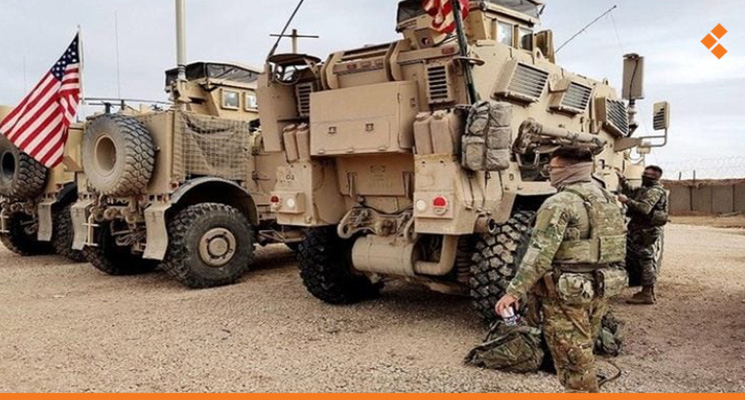In recent times, notable developments have occurred regarding the efforts of the United States to enhance the security of its forces in Syria and mitigate associated risks. These actions have coincided with an escalation in attacks on US bases in the region.
While Turkey emphasizes its intention to combat Kurdish units and eliminate their presence in northeastern Syria, irrespective of external support, the United States is pursuing the formation of an Arab force in eastern Syria. This initiative mirrors the establishment of the Free Syrian Army (FSA) stationed near the American base in al-Tanf.
Amid increasing speculation about the United States’ attempts to create Arab military units as an alternative to the Kurdish forces, Vidant Patel, spokesperson for the U.S. State Department, explicitly stated during a press conference on June 8 that “the United States does not support the establishment of a separate state in northeastern Syria.”
According to press reports, there are underlying factors motivating Washington’s actions in establishing an Arab military force. Sources cited by the Lebanese newspaper Al-Akhbar reveal that the United States had proposed to the Syrian Democratic Forces (SDF) a joint military campaign to seize control of the city of Al-Boukamal, sever the Damascus-Baghdad route, and expand the security perimeter around U.S. bases in northeastern Syria. This plan aimed to establish a connection between the Al-Tanf base and the areas east of the Euphrates. However, the SDF rejected the proposition, citing the need to protect border areas from potential Turkish attacks and the inadequacy of their military forces to cover such vast regions and provide adequate security.
The refusal by the SDF to accept the U.S. proposal has prompted Washington to explore alternatives, including closer collaboration with Arab tribes in Hassakeh, Deir-ez-Zor, and Raqqa. In exchange for their participation in the new project, temptations may be offered to diminish the SDF’s influence over Arab regions, while empowering the newly formed Arab forces in the area. This information was reported by Al-Akhbar..
In pursuit of this objective, the American authorities have engaged in a series of meetings with prominent Arab tribal leaders in Deir-ez-Zor and Hassakeh. Four months ago, an American delegation visited the Kasra area in the countryside of Deir ez-Zor, where they met with sheikhs and tribal notables from the region. These meetings were conducted without coordination with the Syrian Democratic Forces (SDF) or the presence of a representative.
Additionally, another American delegation recently traveled to the area under the control of the “Sanadid forces” and met with their faction commander, Bandar Al-Jarba. During this period, a source from Athr Press in the al-Yarubiya area near the Iraqi border in Hassakeh governorate revealed that the idea of establishing an Arab force with American support had been contemplated for over a year and a half. The American forces had previously met with Sheikh Rafi Al-Harran from the Arab Shammar tribe in the Yarubiyah area, attracting the interest of several tribesmen. Consequently, a number of individuals affiliated with the SDF and the affiliated al-Sanadid forces withdrew, as the sheikh of the Arab Shammar tribe considered joining this force. However, the matter came to an abrupt halt without apparent reasons.
Leaked information received by Athr suggests that the International Coalition forces led by Washington intend to replace some of the leaders they previously supported in the countryside of Deir-ez-Zor. There are also plans to modify certain names, such as the Deir-ez-zor Military Council led by Ahmed Al-Khabil, who hails from the al-Akidat tribe. According to the leaks, there is a proposal to isolate al-Khabil and merge the Deir-ez-Zor Military Council with the forces that Washington aims to assemble in the near future.
Regarding the anticipated outcomes of these American endeavours, a tribal source quoted by Al-Akhbar affirms that the individuals who attended the Kasra meeting lacked significant social influence in the region. The source explains that the prevailing sentiment in the area rejects any assault on the territories controlled by the Syrian army, and emphasizes the community’s aspiration for steps that foster reconciliation and restore the situation to its pre-war state.
This article was translated and edited by The Syrian Observer. The Syrian Observer has not verified the content of this story. Responsibility for the information and views set out in this article lies entirely with the author.


